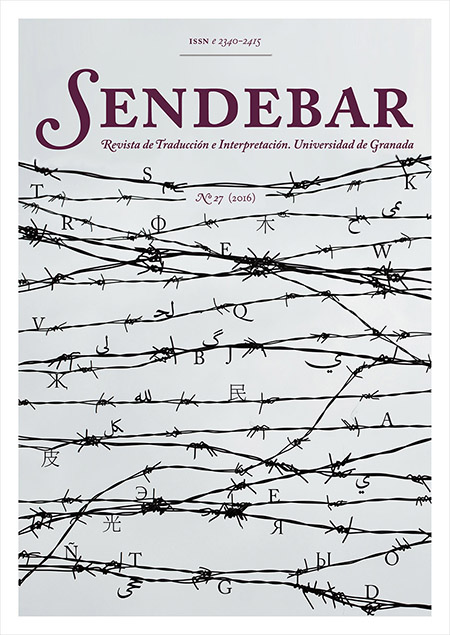Lengua B Inglés: Un estudio transversal sobre la comprensión oral para la interpretación
DOI:
https://doi.org/10.30827/sendebar.v27i0.4770Palabras clave:
comprensión oral, interpretación, ejercicios didácticos, cogniciónResumen
Este artículo tiene como objetivo analizar el valor pedagógico de los ejercicios tradicionales de comprensión oral, especialmente los de elección múltiple y de rellenar huecos, en el desarrollo de la comprensión oral con vistas a la interpretación. Con frecuencia, esta tipología de ejercicios centra la atención en la comprensión de información concreta del discurso como, por ejemplo, determinadas ideas o palabras aisladas, mientras que la actividad de interpretación requiere una comprensión plena del discurso. Para el análisis propuesto, se han aunado teorías propias de la enseñanza general de lenguas, concretamente de la enseñanza de inglés como lengua extranjera, y de la interpretación con el fin de poder analizar sus exigencias y encontrar puntos de confluencia y dispersión entre ambas prácticas. Asimismo, presentaremos los resultados de un estudio empírico llevado a cabo con estudiantes de segundo curso de Traducción e Interpretación. Los datos se han obtenido a través de dos canales diferentes: una serie de pruebas diagnósticas y una encuesta para conocer la opinión de los participantes. Los resultados de este estudio confirman la necesidad de desarrollar la destreza de comprensión oral teniendo en cuenta no solo las exigencias lingüísticas, sino también cognitivas a las que un intérprete debe hacer frente en su quehacer profesional.
Descargas
Descargas
Publicado
Cómo citar
Número
Sección
Licencia
Terminos de Licencia Sendebar.

















